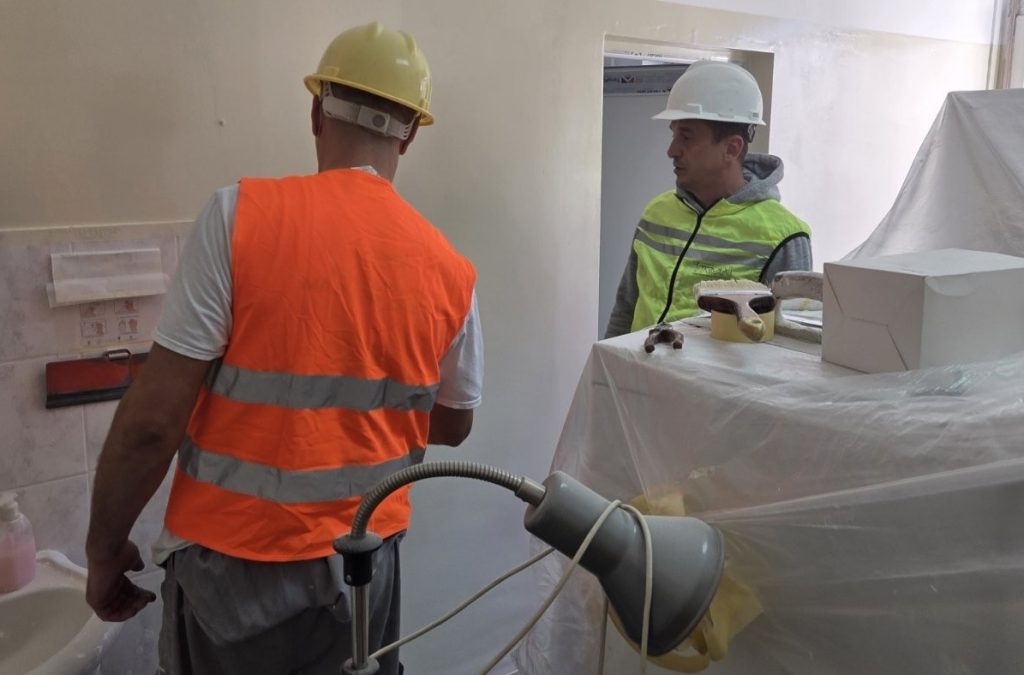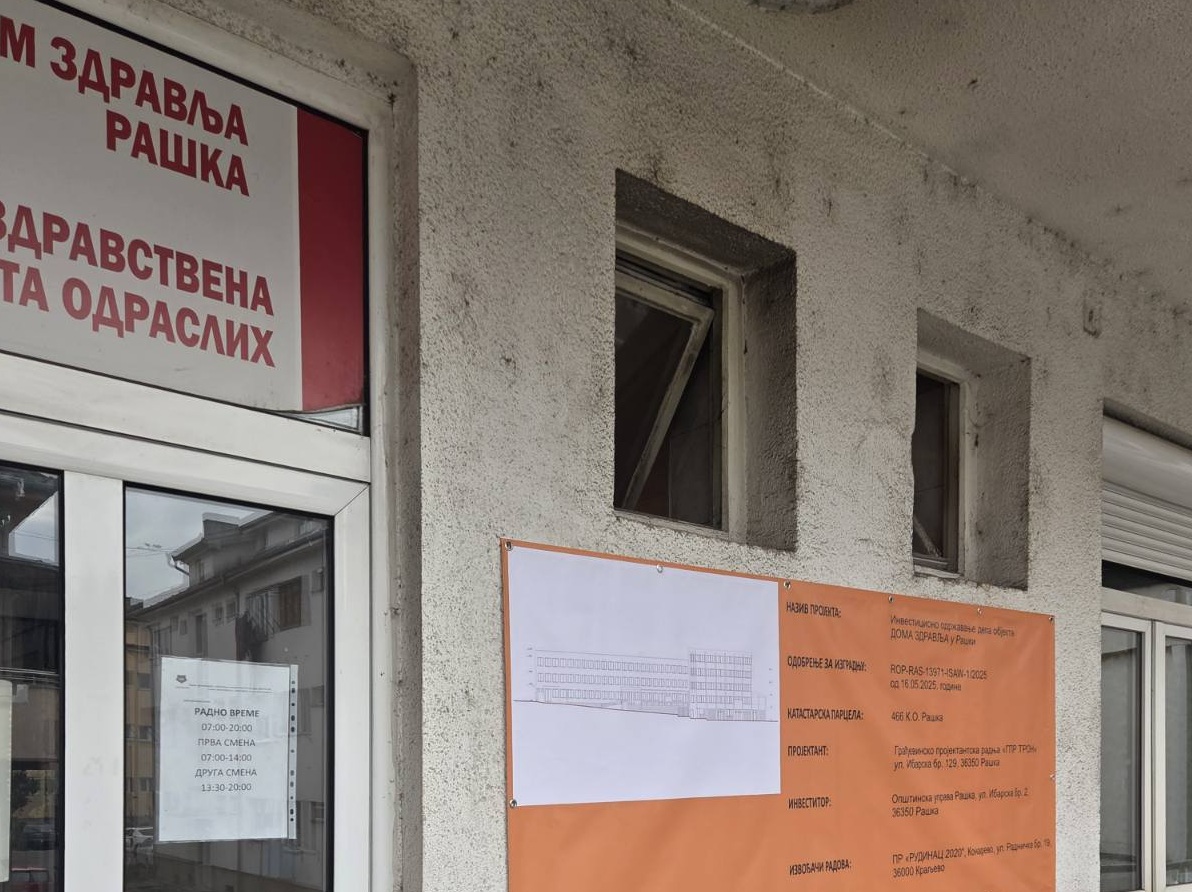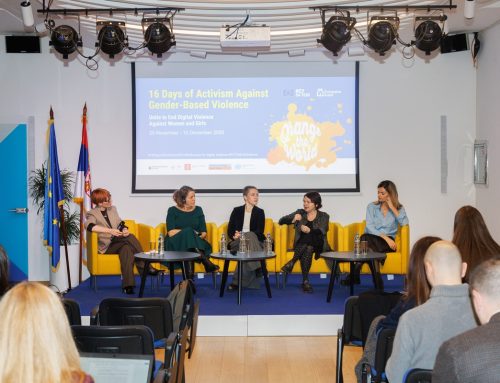With support from the European Union, renovation work has begun on part of the Raška Health Center building, aimed at improving the quality of healthcare services for local residents.
EU has allocated more than €95,000 for the project through the EU PRO Plus program, implemented in cooperation with Serbia’s Ministry of European Integration.
EU funds will cover interior works, including partial floor replacement, renovation of two restrooms, replacement of interior carpentry, plastering, and the purchase of air conditioners and televisions for the pediatric waiting room. The Municipality of Raška is contributing nearly €17,000 toward the project.
In addition, the municipality plans to launch an energy efficiency renovation of the health center in the coming period. This initiative will be financed by the Republic of Serbia through the Directorate for Financing and Encouraging Energy Efficiency, part of the Ministry of Mining and Energy.

Photo: Marko Vujanac
Raška Health Center continues its transformation, following last year’s reconstruction of the X-ray department and the installation of a new digital X-ray machine. A new elevator was also installed, greatly improving accessibility for patients. Once all ongoing works are completed, the facility will be fully renovated, significantly enhancing the quality and accessibility of healthcare services.
The project in Raška is one of 39 local infrastructure initiatives across the regions of Šumadija and Western Serbia, and Southern and Eastern Serbia, supported by the European Union through the EU PRO Plus program. With an investment of over €6 million, the program aims to improve quality of life by renovating and upgrading educational, healthcare, and social welfare institutions, as well as sports and cultural facilities, public utilities, and local administration buildings.
The EU PRO Plus program, which supports more balanced socio-economic development in Serbia, is funded by the European Union with €40 million. Managed by the Ministry of European Integration, the program focuses on strengthening territorial governance, fostering economic growth, and improving social infrastructure and cohesion across 99 local governments in the two regions. Field activities are implemented by UNOPS.




